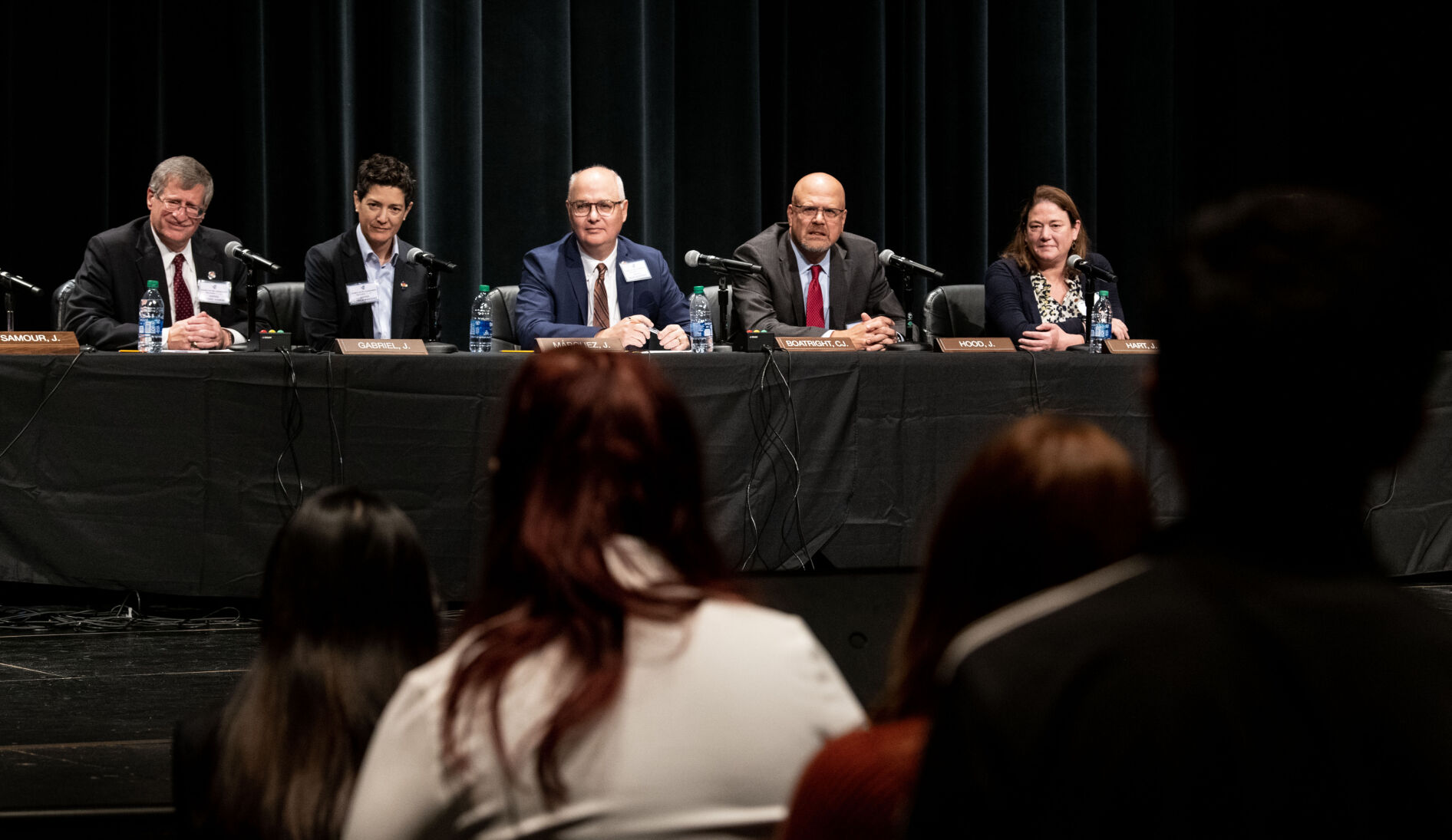Colorado Supreme Court to decide whether life without parole for non-triggerman is constitutional

The Colorado Supreme Court announced on Monday that it will consider whether it is unconstitutional for a defendant to serve a sentence of life without parole for murder when he was not the one who caused the victim’s death.
The case out of El Paso County implicates Colorado’s “felony murder” law, which, until recently, provided the highest level of punishment for people who commit arson, robbery, burglary, kidnapping or sexual assault, and someone happens to die as a result.
At least three of the seven justices must consent to hear a case on appeal.
The Supreme Court also signaled it may intervene in a drunk driving case out of Arapahoe County, where, according to the government, a trial judge is the only one in the state who imposes deadlines for blood alcohol testing – to the prosecution’s detriment.
Felony murder
An El Paso County jury convicted Wayne Sellers IV, a former U.S. Army soldier, for the 2018 murder of Kenyatta Horne. Sellers was part of a group that intended to rob drug dealers the night of the shooting, although he maintained he did not want to take part in the scheme. Sellers fired his gun, reportedly in self-defense, but his bullets did not hit Horne. Another member of the group, Tyler Lee Wheeler, fired the bullet that killed Horne.
Sellers received a sentence of life in prison without parole, or LWOP, under Colorado’s felony murder law.
Following his conviction, the legislature amended the law. After September 2021, felony murder would no longer merit LWOP and, instead, would be a class 2 felony with a maximum punishment of 48 years.
“We are not saying that there should be no consequences for serious offenses,” said Rep. Mike Weissman, D-Aurora, one of the sponsors of the change. “If you present people with the reality – not the possibility, but the reality – that somebody could get sentenced to life without the possibility of parole where it’s not proven they killed anybody or even intended to, I think a lot of people would be surprised by that.”
Sellers appealed his conviction, arguing a sentence of LWOP for felony murder categorically violates the Eighth Amendment’s prohibition on cruel and unusual punishment. Relatedly, he contended a life prison sentence was “grossly disproportionate” to his actions.
Last year, a three-judge panel for the Court of Appeals rejected Sellers’ claims. The panel acknowledged the U.S. Supreme Court has held mandatory LWOP unconstitutional for children, even if they commit murder, but has never extended that prohibition to cases involving an adult in a homicide case.
The appellate judges also disagreed that the legislature’s abolition of LWOP for felony murder going forward meant the offense was no longer “grave or serious.”
“While we recognize that this life sentence is potentially substantially longer than the maximum forty-eight years a defendant in Sellers’s shoes could receive under the amended statute,” wrote Judge Ted C. Tow III, “those differences do not mean that the sentence is grossly disproportionate.”
Sellers appealed to the state Supreme Court, arguing that LWOP for his crime does not accord with “evolving standards of decency,” which is the metric the U.S. Supreme Court considers when evaluating cruel and unusual punishment.
“When the General Assembly changed the penalty for felony murder in Colorado, it acknowledged the need for hope, rehabilitation, and fairness in sentencing,” wrote defense attorney Krista A. Schelhaas. “It also recognized the draconian roots of LWOP sentences and determined that Coloradans no longer tolerate LWOP for felony murder. That reasoning applies to the people charged after the change in the law and to the one hundred plus people currently serving LWOP for felony murder.”
The Colorado Supreme Court has agreed to evaluate whether a lifetime sentence is unconstitutional for felony murder, and whether it is grossly disproportionate given the change in law.
The case is Sellers v. People.
The judge who sets DUI deadlines
One night last November, Ashleigh Walthour drove off the road and crashed into trees in Aurora. Responding officers believed her to be intoxicated and she agreed to a blood draw.
Nearly three months later, Walthour appeared before Arapahoe County Court Judge J. Jay Williford. She had not yet obtained a lawyer and the prosecution hoped to receive her blood results from the Colorado Bureau of Investigation within two weeks. In response, Willford directed the 18th Judicial District Attorney’s Office to provide the test results by Feb. 28.
At her next court appearance on March 7, Walthour, who was still in the process of applying for an attorney, mentioned she had still not gotten the results of her blood draw. She wondered if it was “not something that we will be receiving.”
Prosecutor Ben Bongutu responded that the timing was not within his control.
“I do apologize to the Court for it, but it’s not a situation where (prosecutors) have failed to obey a court order,” he said.
Williford then bemoaned the increased time CBI was taking to process blood tests, noting Walthour’s case was now 97 days old.
“I understand the argument from the district attorney’s office is, ‘Well, judge, there’s nothing we can do.’ And I disagree,” Williford said. “It is frankly something that continues to get worse and worse. And I am frustrated by the delays from the state lab.”
As a consequence for violating his deadline to disclose the results, Willford sanctioned the prosecution by blocking the government from using that evidence against her. Walthour’s test, which was finished the day after Williford’s ruling, showed her blood alcohol content was 0.16 – twice the legal limit.
The 18th Judicial District Attorney’s Office appealed directly to the Supreme Court, contending Williford’s actions were a cause for concern and an outlier among judges.
“Judge Williford is the only judge in the 18th Judicial District who routinely sets deadlines for the completion of DUI blood testing, and – based on input from other District Attorney’s Offices – he appears to be the only judge in Colorado who imposes such deadlines,” wrote Deputy District Attorney L. Andrew Cooper.
Cooper elaborated that Williford set deadlines for test results in one-third of his drunk driving cases last year, with seemingly no rationale for the due dates. Further, while the CBI is improving its turnaround times for testing, Cooper indicated that judge-imposed deadlines create more problems for the batch testing of blood samples.
“A single judge’s deadlines might speed up blood test results in that judge’s courtroom, but – by interrupting CBI’s workflow – the deadlines slow down the results in other courtrooms that handle DUIs,” he explained.
The Supreme Court has directed Williford and Walthour to explain why the judge’s ruling should not be overturned.
The case is People v. Walthour.













